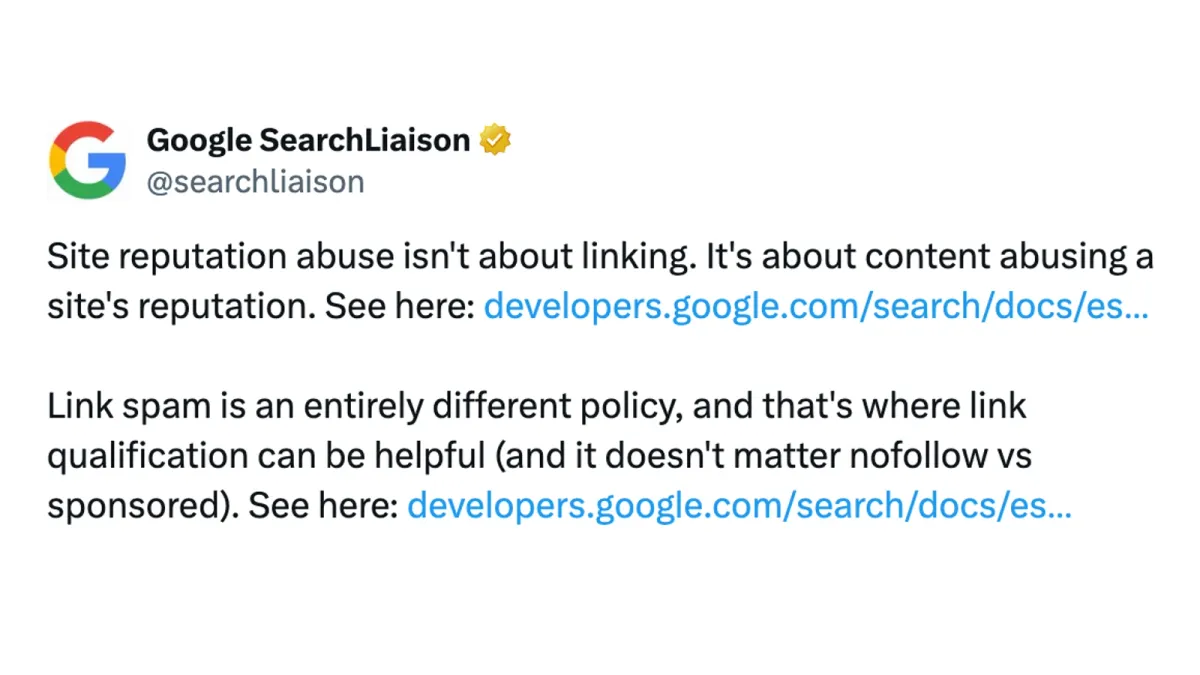
The official Google SearchLiaison Twitter account (@searchliaison) yesterday issued a tweet clarifying the distinction between "site reputation abuse" and "link spam" within Google's Search Console guidelines.
This differentiation is critical for Search Engine Optimization (SEO) specialists, as both practices can negatively impact a website's search ranking.
Prior to this clarification, some marketers may have been confused about how Google treats these two tactics. Understanding the difference allows SEO professionals to focus on legitimate strategies that enhance website reputation and search ranking, while avoiding practices that could incur penalties.
Google defines site reputation abuse as "when third-party pages are published with little or no first-party oversight or involvement, where the purpose is to manipulate Search rankings by taking advantage of the first-party site's ranking signals." In simpler terms, it involves creating low-quality content on a reputable website to piggyback on its authority and ranking power.
Site reputation abuse isn't about linking. It's about content abusing a site's reputation. See here: https://t.co/Yl9XWr6aql
— Google SearchLiaison (@searchliaison) May 9, 2024
Link spam is an entirely different policy, and that's where link qualification can be helpful (and it doesn't matter nofollow vs sponsored). See here:…
Examples of Site Reputation Abuse:
- An educational website unknowingly hosting guest posts about payday loan companies, written by a third party, with the content being distributed across multiple websites.
- A medical website featuring a guest page about "best online casinos," designed primarily to manipulate search rankings for gambling keywords.
Impact of Site Reputation Abuse
Engaging in site reputation abuse can lead to serious consequences for a website, including:
- Manual penalties: Google may manually penalize the website, causing a significant drop in search rankings.
- Loss of trust: If users encounter low-quality content associated with the website, it can damage brand reputation and user trust.
Link Spam explained
Link spam is a separate SEO tactic that involves manipulating a website's backlink profile. Backlinks are links from other websites pointing back to a specific webpage. While backlinks are considered a sign of website authority and relevance, link-building practices that artificially inflate backlinks can be flagged as spam by Google.
Examples of Link Spam:
- Purchasing backlinks from low-quality websites with no thematic relevance to the target website.
- Participating in automated link exchanges where websites indiscriminately exchange backlinks.
- Posting irrelevant comments on other websites with links back to the target website (comment spam).

